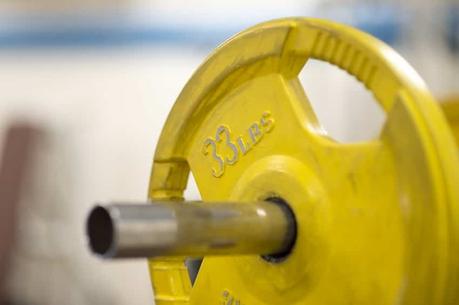
Mental toughness is one of the dominant characteristics of top athletes. Here’s your guide to becoming mentally tougher so that you can crush the competition and your practices.
You hear it all the time when people discuss athletes at the top of their game. The resilience, the grit, the fortitude—the athlete at the pinnacle of sport display it with ease and stunning regularity.
As an aspiring athlete you know that this kind of mental toughness is cool to watch and would be even better to have.
Here’s what you need to know about becoming a mentally tougher athlete.
Mental Toughness: The Difference Maker
Being mentally tough goes beyond just being able to endure pain and trials.
- Mentally tough athletes are able to corral their self-talk. They are conscious of the fact that thoughts dictate behaviors and actions. They limit the doubt, and stick to self-proven ways of staying calm and positive (“I got this,” or “I can do this” are two simple examples).
- Mentally tough athletes can manage and appropriate their arousal levels in practice and competition. They can dial it down when they are too excited, and can turn it up when necessary.
- Mentally tough athletes don’t get distracted. They stay focused on the task at hand until it is completed. They pound away at something until it pays them, err, gets accomplished.
- Mentally tough athletes master the ability to push themselves. They are able to physically and more importantly, mentally, push beyond existing comfort zones and self-imposed limitations.
- Mentally tough athletes stay in their own lane. There are things you can control, and things you can’t. Mentally robust athletes tend to focus on their own effort and performance, declining to get tangled up in what the competition are up to.
In reality, being mentally tough is about conquering self.
And really, is there any greater power than being able to do that?
Mental Toughness is a Skill and a Decision
One of the boring realities of mental toughness is that it is a decision. Seriously. You either decide to be mentally tough…or you don’t. It’s not something you theorize on endlessly, or meditate on, or think about doing before you actually do it.
You can choose to finish that “impossible” set…or don’t. You can choose to get up early tomorrow morning and go for a run…or don’t. It’s not this impossibly nuanced characteristic…it’s something that’s already there within you.
That being said, there are athletes who instinctively “have (more of) it.” Some call it the “rage to master” (love that expression). I like to call it the leatherneck mindset. (Trademark pending.) Some athletes just seem to have a killer instinct from day one.
For those who mental toughness doesn’t come naturally, or even semi-naturally, there are some things that you can do to encourage it more often.
In fact, one mental toughness training program/study with a group of track athletes at the University of Western Ontario found that participants were better able to control competition anxiety, increased self-confidence, and even had better practices.
Sounds good to me!
Here are some my favorite and proven ways to help athletes level up their mental toughness.

Starting is always the hard part.
Ever notice how starting something, whether it’s a brutal workout, a massive schoolwork assignment, or cleaning the whole house, always feels intimidating from the outside looking in? And that once we start, suddenly things seem to feel not so bad?
Mental toughness, then, isn’t so much always about being able to endure something, as it is mastering the habit of starting. To remove the pressure of starting a difficult task, and of being able to talk yourself down when you build something up as impossible or too challenging.
There are two ways that you can get into the habit of starting faster:
- Create instigation habits. This is one of my favorite ways to making working out a habit, and it is something you can use to make yourself mentally tougher as well. Instigation habits are simple, they turn the focus around from the completion of a task to beginning the task. It’s a subtle, but massively powerful difference. For example, if your goal was to run 10k today, you would reframe it so that your goal was to run the first 500m. You can read more about instigation habits here.
- Focus on the routine. Great athletes always have killer routines. It’s not enough to want a particular result or goal—you have to want and appreciate the process or routine that comes along with it. You can read more on the value of focusing on the routine in this article.
Take your failures and setbacks and use them as rocket fuel for success.
Mental toughness is not about being able to better grit your teeth when something falls on your feet. Or being super hurt and going to practice anyway. It’s about how resilient you are.
It is getting injured…and using that injury as motivation to come back stronger and faster than ever.
It is getting soundly trounced in competition…and showing up on Monday morning ready to put in the work necessary to improve.
Resilience is continually shown to be a marker of successful athletes, with one fascinating paper into the mindset of “super champions” showing that this kind of resiliency in the face of injury, illness, defeat, and other setbacks, to be characteristic of those who succeeded at the highest levels.
In fact, it was setbacks that actually ended up fueling big spurts of improvement later on.
There is one quote that stood out the most within the research, and which I think encapsulates the attitude that is necessary to bounce back in the face of failure:
“There were days when I was like ‘Why is this happening to me? I am so frustrated, what am I going to do? How long is it going to take me to get back?’ But then the other days were like, ‘right what do I need to do? I’m going to do this, do this and get back’. But I never, ever thought I wanted to quit. I think I still would have worked hard and still trained and done everything I could have done. But I think it gave me a different mental capacity. Because I’d never had to deal with anything like that before, so I definitely did think it changed me and made me achieve what I then went onto achieve.”
As this particular athlete mentioned, the setbacks and failures were often the thing that helped motivate and propel him to eventual success. Make your setbacks become the jet fuel for your success.
Take control of your self-talk.
When we discuss mental toughness self-talk probably isn’t the first thing to come to mind. The idea that the narrative that we keep in our brain, and that the things that we say to ourselves play a role in how leathernecky we are mentally can seem a little strange.
But when ya think about it, it all starts with the self-talk you use in practice and in competition. What we think, and we what we say to ourselves, dictate our actions and behaviors.
Put more simply: what you think is what you do.
If you keep telling yourself that you can’t finish the set, that the workout is too hard…do you think you are going to actually finish? Not terribly likely. If, on the other hand, you can coax and talk your way through those doubts
Beyond the fact that positive self-talk has been shown to boost self-confidence and kick anxiety in the junk-a-dunk, it also helps you to survive and yes, even thrive, during those ridiculously challenging and stressful moments in training and competition.
One of my favorite tools, that I still lean on to this day, is the old 1MR rule. (Not to be confused with 1RM.)
It creeps a little bit into the whole, “just get it started” aspect of mental toughness, but it also will help you through those exceptionally hard workouts where you are feeling like you are ready to throw it in.
- When you have 10 more 400m sprints to do…just worry about doing one more rep.
- When you have 7 more workouts to close out the week…just about doing one more workout.
Just focus on doing one more rep. Taking one more step. Doing one more lap. And nothing else.
This little Jedi mind trick helps to keep you from feeling overwhelmed when the enormity of the practice or the meet or the game at hand starts to creep up on you.
As an example, I was at a local track a couple weeks ago, on a rather cloudy and sluggish-feeling day, and felt myself in struggle city after the first couple laps. The legs felt a little heavier than usual. Work stress had been compiling all day.
As each lap passed I told myself, “one more.” Eventually, those “one more’s” turned into an additional 18 laps, by which time I felt a whole lot better and a whole lot sweatier.
When s*** is getting real…just one more rep it until it’s conquered.
The Next Step
Developing a bullet-proof mental game, and mental toughness is a key foundation of this, is becoming more and more common with athletes. Excelling at the highest levels requires a comprehensive approach, and mental toughness skill development is becoming more prominent in athlete prep.
Although the value in mental toughness training isn’t as easy to track as improvement on a power rack the gains that can be made can
Best of all?
Mental toughness skills are lifelong and applicable to every area of your life, from interpersonal relationships, to household choirs (“…just one more dish”) to your career.
Want more help leveling up your performance?
Here are some more articles and guides that I have put together for athletes:
Visualization for Athletes: How to Crush the Competition and Your Workouts. You are already using this mental training skill–here’s how to use it for your benefit.
How to Develop World-Class Self-Awareness. Self-awareness and accountability are the ignition for improvement, whether it’s in the gym, on the playing field, or in life. Here’s how to become more self-aware.
Become Unstoppable: How to Make Working Out a Habit. Is there anything more powerful than something that is habitual? Not likely. Here is your plan of assault for making exercise, nutrition, or whatever other change you want to make, lasting and routine.
